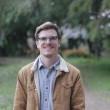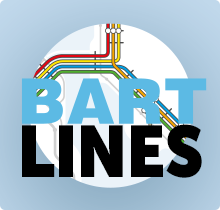The four-leaf clover should not have been there, caught in Esteban's hair. It was a surprise there was any clover at all. The cows had already been through twice that week, pulling at the remnants of ... [+]
Birds, Circling, Everywhere
I'm leaning against a cane on the gravel track that forms a circle above the old polo field at Golden Gate Park. Ginny is swiping around on her cell phone on a bench just behind me. Around us, a dozen or so strangers walk, bike, and run around this great circle, while the fenced-off soccer field below is inhabited only by a flock of geese pecking worms out of the wet earth. I hand the cane to Ginny and kiss her cheek. She smiles exactly like Petra did—all lips, her eyes nearly closed.
"See you soon, pup," I say.
"Wave at me if you need anything, Pop."
I walk, bobbing up and down as my feet scrape through the gravel. I leave a trail that looks more like tire tracks than footprints. Scrape-scrape, scrape-scrape.
***
The bespectacled young doctor tried to level with me: "Mr. Guidry. You. Had. A. Stroke."
"Fat chance. I eat plenty of vegetables," I said.
—or tried to say. What came out was closer to: "Laaaag dfanf, iriink lenny ffar."
Then I tried to lift my arm, my leg, and finally just my left index finger. It wasn't even like I was straining my muscles; the feeling was more like an absence, like the left side of my body simply wasn't there.
Once I could recite my ABCs, the hospital dumped me off to Ginny, who had by this point been divorced from Mark for several months and now found herself with a new man to burden her. She had already converted the office in her apartment into a hospital ward, given that the stairs on the Fulton Street family home would now be impossible. For days and weeks and months, I just about suffocated in my own musk. Ginny was obviously distressed by having to pull down my pants at the toilet, but she's a silent sufferer and would never let on. Still, we forgot how to talk to each other except in terms of medication schedules.
I would've died a parasite in that very room were it not for Ginny's insistence one day on driving me to the park. She pushed me in a wheelchair from JFK Drive onto a wide dirt path that sloped up to the polo field. The fog had enveloped the entire track. The trees stirred around me, and I heard the whistling of birds carried in the wind.
Standing shakily from the chair that first day, I said: "I want to do a loop around the field." Ginny looked at me nervously, but she acquiesced. I wrapped my left arm around her shoulder. She grabbed and held my limp hand, and I focused every living nerve on holding hers back.
There, in the grey haze, I saw them as we limped along—birds, circling, everywhere.
***
My left leg is possessed by some sense of muscle memory that says lift, lower, hold, but the feeling doesn't reach my brain. I just have to trust in my body to remember. I pump my arms, the left one flopping through the air like a hurt wing. Near me, a lower, denser layer of fog begins to seep in between the trees, covering a couple sitting on the sloped hill that leads to the soccer field. I bob forward on the track, scrape-scrape, scrape-scrape, until, there it is! My knee remembers itself, and I begin to walk almost upright. Next to me, a fleece-jacketed man launches a tennis ball from a lacrosse stick, and his golden retriever flies on a recovery mission across the track. Launch, catch, return. I keep pace with them as we approach the second bend. The blanket of low fog is chasing me, and I play along in our little game.
***
"I have to get everything ready," she sobbed, pulling on her shaking fingers. "We don't have cranberry sauce or stuffing, and the turkey isn't thawed."
"Baby, it's February," I said, crouching next to her. "It's just you and me. Let's get some rest."
Toward the end, our house only made her anxious and confused, like her soul was choking for air. So we started taking long walks through the city, first one hour, then two, then three. Late one afternoon, I took her through the park to Ocean Beach, where we sat on the seawall as the fog horns began blaring their afternoon greetings. Each time one of those horns belched through the fog, she just about died with laughter. She smiled and laughed and cried in a way that reminded me of Ginny as a child.
"What's so funny over there?" I asked her.
She wiped her eyes and gestured somewhere in the diffused grey light around us. "You just have to look at the birds. It's unbelievable."
"Where are they?" I asked, trying to match her excitement. "Where do you see them?"
She swept both arms across her whole body. They're everywhere, the gesture seemed to say. I looked sadly at the empty foggy sky. I wished so badly I could see the birds. Sliding my arm under her fleece jacket, I wrapped her up close. On later foggy evenings sitting on that seawall, I found that I could smile, knowing something magical was happening inside her, around her.
***
As the fog blankets this little world, the man and his dog disappear. It's in this moment that I feel everything: foot and toes and ankle and knee and replaced hip and once-torn labrum and broken head and toothache and fingertips.
And in the hazy grey, as I finish my loop around the track, I can see. The boy on the hillside throws a ball over the fence onto the pitch, and the girl blows a whistle. Play ball. The geese pull their heads out of the dirt and conference in the center of the field, gamely forming two teams and designating positions. I take my seat in the bleachers as the golden retriever on the track turns into a great blonde mare. Her owner—a hatted jockey bobbing on top with his little lacrosse whip. The wind carries greenbean leaves from the eucalyptus, and they carry and carry, never landing, spreading to the sands of Ocean Beach. The breeze rushes around my body, and I feel everything: nerve endings on fire, the weblike strands of terminal brain cancer, Ginny's tears now dried on my shoulder, the father-daughter dance at her wedding, my dead hand held until it could remember—it's all right here, in this cove hammocked between the trees. I sit in the bleachers and breathe the sage and watch the star goose attacker reach his neck and head in the game-winning goal, and the crowd around me cheers.
And the birds. They're everywhere.


